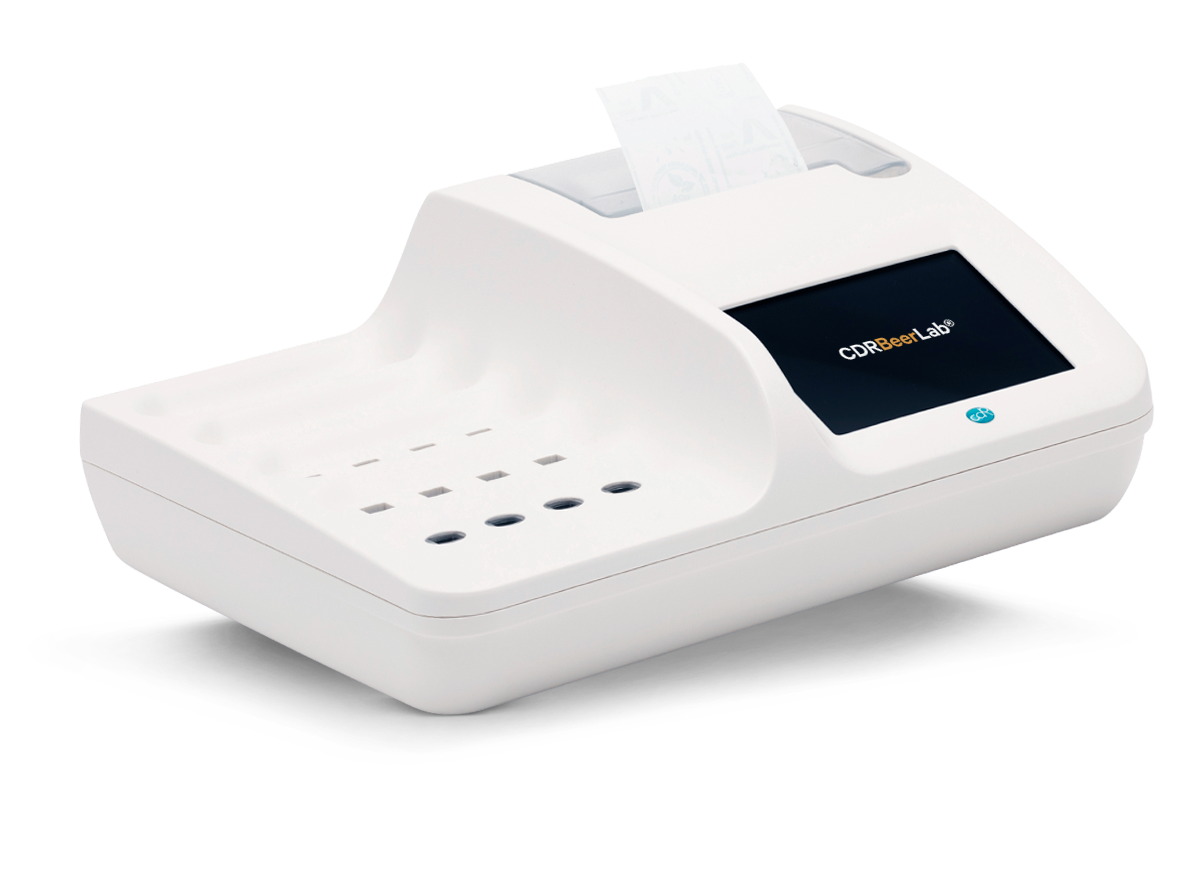Determination of Acetic Acid in beer and wort
The determination of Acetic Acid is important in some categories of beer and in the identification of organoleptic defects. Acetic acid can be produced by several yeasts and bacteria present in some categories of beer. It may form during fermentation, secondary product, or during storage due to the deterioration of finished beer.
With CDR BeerLab® you can perform a quantitative analysis of the acetic acid in beer with a simple photometric method, working on beer as it is or wort avoiding laborious treatments.
Method
Test type: End Point.
Time testing: 6 minutes.
Analysis sessions with multiple samples are possible up to a maximum of 4 tests for CDR BeerLab® and 3 tests for CDR BeerLab® Junior.
...
Sample treatment
Use on beer or wort. The beer sample needs to be degassed using the ultrasonic bath (code 222062) before taking the sample. For higher accuracy in the analysis of wort we recommend to centrifuge (code 222061) the sample.
Principle of the test
Through an enzymatic reaction, acetic acid is converted into piruvic acid, which in turn reacts with NADH producing NAD+ and D-Lactic acid. The reduction of absorbance, measured at 366 nm (end-point), of the NADH solution is proportional to the quantity of acetic acid present in the sample.
...
Calibration curve
The calibration curve was made using samples with known values of acetic acid. The trend of the curve confirms the excellent linearity of the system over the entire measurement range.
...
Reagent test Kits
Measuring range
| Analyses | Measuring range | Resolution | Repeatability |
|---|---|---|---|
| Acetic acid [20-220] mg/L | 20 - 220 mg/L | 1 mg/L | 11 mg/L |
The Analyzers for process and quality control in beer brewing
CDR BeerLab®
Complete analysis panel, supplied already configured
Up to 16 determinations simultaneously
Possibility of carrying out analyses of the same sample
Integrated printer
Full connections (LAN - USB - Bluetooth barcode/QR code reader)
CDR BeerLab® Jr
Partial analysis panel, customisable configuration
Up to 3 determinations simultaneously
Wireless connection to external printer
USB connections
